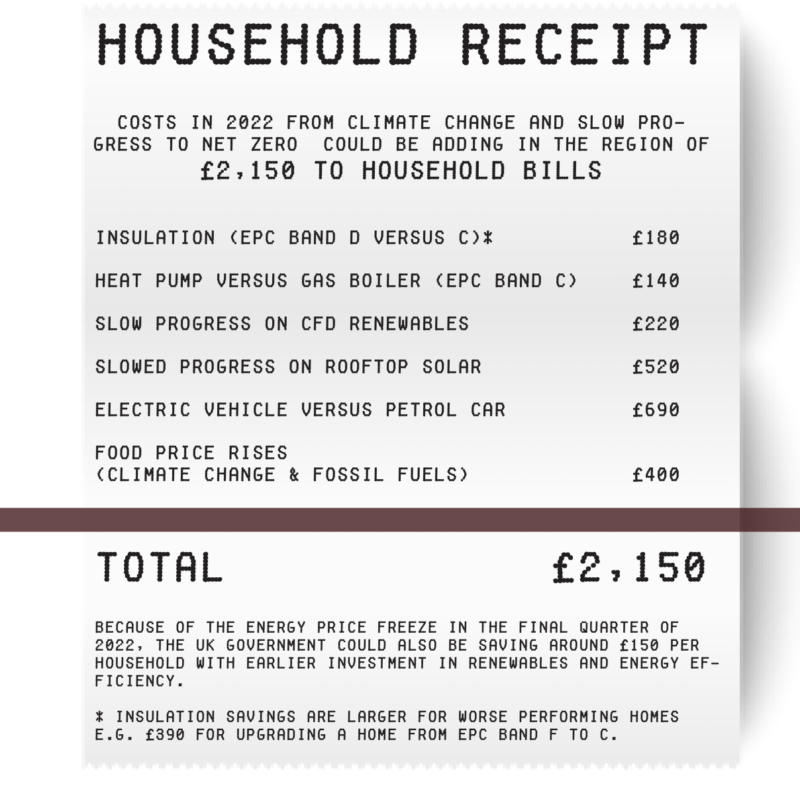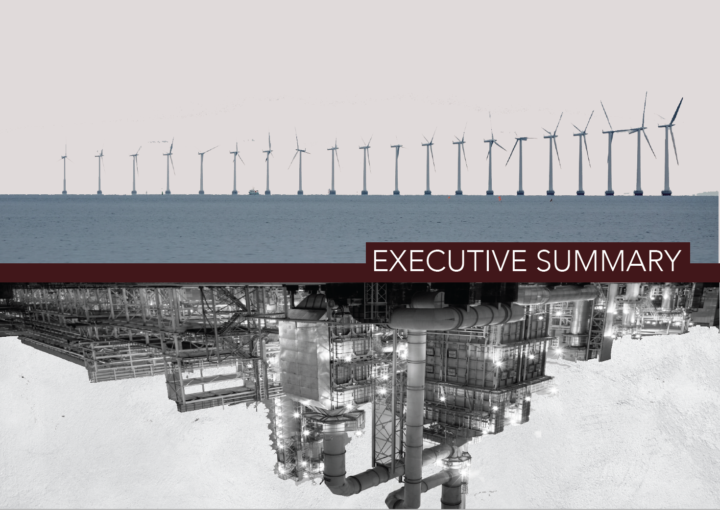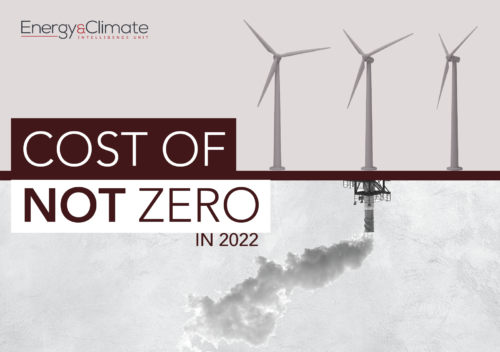Cost of NOT zero in 2022
Missed savings and impact of climate and energy costs add up to £2,150 to UK household bills in 2022
Last updated:
The impact of climate change hit home for the British public this summer with temperatures rising to 40.3°C, setting a new record. The heatwave was made ten times more likely by climate change. At the same time the energy crisis, caused in part by Russia’s invasion of Ukraine, created an extra strain for bill payers with gas prices hitting new highs.
Britain was the first G7 countries to commit to reach net zero emissions and now 91% of global GDP is covered by net zero targets. But progress on climate and energy policies to shift to newer, cleaner technologies has in some ways slowed in recent years, for example, with the ban on onshore wind farms. In this analysis we look at the cost impacts of delays in these policies to household bills and the UK as a whole.
The analysis has found that if the UK had not delayed in deploying renewables, insulation, rooftop solar panels, heat pumps and electric vehicles, some households could have saved around £1,750 on bills in 2022. Plus, homes are facing more than £400 extra in food bills this year because of the impact of climate change and oil and gas prices on the farming and food system. This amounts to a potential £2,150 added to household bills.
While this analysis focuses mainly on households, businesses could also have benefitted from faster deployment. For example, UK farms could have saved up to £1 billion over two years if they had been helped to install solar panels.
Deployment of these technologies would have involved significant initial investment, but these upfront costs would have already begun to pay off in the form of lower bills as well as stimulating growth in industries such as building, car manufacture and renewables.


